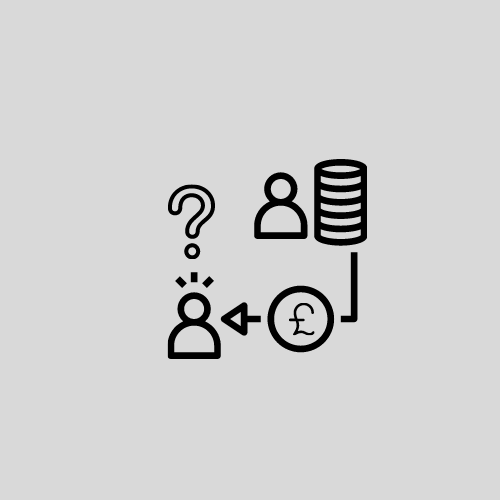Everything you need to know about the Bank of England rate rise
The largest rate rise since 1989

With inflation hovering at a 40-year high, managing day-to-day cash flow has become the primary reason for small business applications for finance, according to iwoca's latest SME Expert Index.
Their recent survey reveals that managing cash flow is the most common loan purpose for over two in five small businesses (42%) over the last quarter, a 16 percentage point increase from the same period last year. This is the first time since Q2 2021 that cash flow concerns have overtaken ambitions to grow business as the primary reason to access finance.
What is inflation?
Inflation is a measure of the price that goods (such as food or televisions) and services (such as haircuts or train tickets) have increased over time. It is measured by comparing the cost of things today with how much they cost a year ago. The average increase in prices is known as the inflation rate.
So if inflation is 3%, it means prices are 3% higher (on average) than they were a year ago. For example, if a loaf of bread cost £1 a year ago and now it’s £1.03 then its price has risen by 3%.
Why have interest rates increased?
The cost of living in the UK has rapidly increased, squeezing the economy. The Russian invasion of Ukraine has caused increases in the price of food and goods as well as given us soaring energy bills. Low-income households have been hit the hardest by high inflation.
The bank of England is tasked with making sure inflation is low and stable. They need to bring inflation back down and the way they do that is by increasing interest rates.
The UK’s key interest rate, the Bank Rate is set by the Bank of England. It is more widely known as ‘the base rate' or just ‘the interest rate'. Bank Rate influences all the UK’s other rates, including those you might have for a loan, mortgage or savings account.
The Bank Rate raised from 0.1% last December, to a current rate of 3%. The most recent increase happened on 3rd November of this year.
How high will interest rates go?
If necessary, the Bank Rate will be raised further to bring inflation down to a 2% target set by the government. The Government sets the Bank of England an inflation target of 2% to keep inflation low and stable. This helps everyone plan for the future.
If inflation is too high or it moves around a lot, it’s hard for businesses to set the right prices and for people to plan their spending.
But if inflation is too low, or negative, then some people may put off spending because they expect prices to fall. Although lower prices sound like a good thing, if everybody reduced their spending then companies could fail and jobs could be lost.
How high Bank Rate will need to go depends on what happens in the economy and what the bank of England thinks will happen to the rate of inflation over the next few years.
But the future is uncertain, we can’t precisely know how high Bank Rate will go. How the economy is doing is continuously reviewed every six weeks or so to see if a change to the interest rate is needed. The next interest rate decision is on 15th December 2022.
How long will high inflation last?
The main reason why inflation is currently so high is due to high energy prices. In particular, the Russian invasion of Ukraine has led to big hikes in gas prices as well as increased food prices.
Recent economic developments in the UK have also put pressure on prices. Fewer people are seeking work following the pandemic meaning there are more job vacancies than there are people to fill them. Businesses are facing higher costs, energy costs have increased and employers are having to offer higher wages to attract job applicants. In relation, businesses are charging more for their goods and services.
The Government cap on energy bills means that inflation is expected to rise but only a bit further from where it is now. The rate of inflation is currently about 10.01%. It is expected for it to rise to about 11%. After that, it has been suggested it will stay above 10% for a few months, before starting to fall.
It’s the bank of England's job to make sure that inflation continues to fall back to its 2% target.
How do higher interest rates help to bring down inflation?
Higher interest rates make life more expensive. It is more expensive to borrow money and encourages people to save and, overall, spend less.
If people spend less on goods and services as a whole, then the prices of those things tend to rise more slowly. Slower price rises mean a lower rate of inflation.
The Bank of England takes action to keep inflation low and stable by changing interest rates. This is called monetary policy.
A change in Bank Rate affects how much people spend. And how much people spend overall influences how much things cost. So if we can influence prices and inflation by changing the Bank Rate.
How does Bank Rate and inflation affect me?
How Bank Rate affects you partly depends on if you are borrowing or saving money.
If rates fall and you have a loan or mortgage, your interest payments may get more cheaper.
If interest rates fall, it gets cheaper for households and businesses to increase the amount they borrow however, there is less of a reward to save.
Lower rates also generally increase the value of wealth such as people’s pensions or housing, compared to what they would have been.
Overall, we know that if we lower interest rates, this tends to increase spending and if we raise rates this tends to reduce spending. So, to meet the inflation target, the bank of england has to judge how much people intend to save and spend given the current interest rates. For example, if people start spending too little, that will reduce business and cause people to lose their jobs. In that case, we may cut interest rates to help support spending.
You will be directly affected...
Negatively; If the bank rate goes up and you have a loan or mortgage that charges you a variable interest rate, you might find that the cost of your repayments go up.
Neutrally; If you’re on a fixed rate you won’t see any change until your fixed period ends.
Positively; If you have savings in a bank account that pays interest, you might see a rise in interest rates on your savings.
Understanding how a change in interest rates could impact your ability to pay is important.
What can I do to prepare my business?
A free business review can check over any current finance agreements and highlight any cash flow issues. Securing the right sort of funding product for your business is vital. Refinancing to affordable lower monthly payments can massively help when cash flow is tight.
It is also prudent to have a financial product like a revolving cash facility in place, so that if you need it extra money it is instantly available but unless it is in use interest isn't paid on it.
Flexible repayment options that contract and expand along with your sales are also beneficial for businesses that use card payment terminals to receive payments. Merchant Cash Advances are one of the most flexible funding products when it comes to repayment structures.
Winchester Corporate Finance offers a quick free no obligation business review. We will check over and discuss your business needs to then present the funding products available and most suited to you. We provide a tailor-made service and are on hand to answer questions and explain products and your options.
Email: hello@winchestercf.com
Tel: 01243 786258
5A
East Pallant
Chichester
P019 1TR






